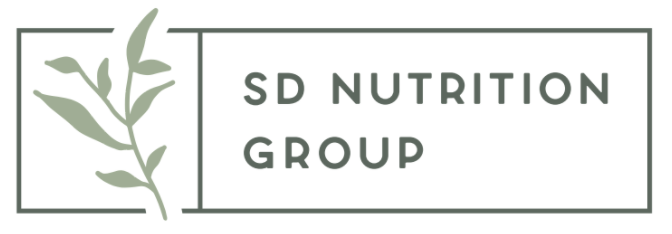How to Spot a Diet
Is that lifestyle change really a diet in disguise?
It seems like diet culture gets sneakier and sneakier with each new diet craze. In the past, it might have been a bit more obvious and easier to spot when something was an extreme, fad diet. And even though diet culture is still extremely prevalent in our society, the Intuitive Eating framework is gaining in popularity. Unfortunately, that means diet culture has gotten its hands on it. Recently, we’ve seen Intuitive Eating being distorted and misunderstood as another diet or weight loss tool! Because the diet industry is just that- an industry! – it has to constantly evolve and shape-shift to keep people interested and spending time, energy, and money on diets.
Let’s be very clear about one thing: Intuitive Eating is not a diet. It is not a weight loss tool. Intuitive Eating is a non-diet approach that is centered around helping people heal from chronic dieting and foster a healthy, nourishing relationship with food and their bodies. It teaches us to rely on our own internal cues as a guide for what, when, and how much to eat rather than relying on external rules about how to eat. Intuitive Eating is never about changing the body’s size, shape, or weight through control with food.
Many who start a new diet or “lifestyle change” just want to live healthier lives and feel better in their bodies. With the sheer amount of health, nutrition, and wellness information out there, it can get more and more difficult to spot a diet before you’re fully in it, stressing about the next time you’ll get to eat. Here are some big red flags to look for next time you’re tempted to jump on the diet train:
It has a specific timeframe. Think statements like “Lose X pounds in X days!”, “one week to weight loss”, or a diet like Whole 30. These signal that this diet probably has some pretty extreme, non-evidence-based rules to follow. It is not healthy or sustainable and does not honor your body’s needs. Not to mention, most people who lose weight quickly on a diet will regain the weight, plus some. This type of extreme behavior or weight loss can also be a trigger for disordered eating and eating disorders for some.
It seems too good to be true. …it probably is. If the diet makes promises that just seem too good to be true, or promise to fix all of your health and body woes just by following “a few simple steps”, run far away.
It requires cutting out certain foods or food groups entirely. All foods can fit into a healthy, nourishing, balanced way of eating. Yes, including the burger and fries. Of course, sometimes we must avoid certain foods for health conditions or food allergies. But if you enjoy a food and it makes you feel good, it can absolutely be a part of how you choose to feed yourself. Cutting out foods or food groups creates stress around eating, and in extreme cases, like orthorexia, can even lead to nutritional deficiencies.
Recommendations are made to sell you something and are not evidence based. Let’s remember that the diet industry’s main goal is to make you feel like you need to change something about yourself, so that then you’ll go out and buy the newest exercise machine, cookbook, scale, nutrition shake, measuring cups, etc. etc. Your body is smart and knows what it needs without all these gimmicky products.
It makes you feel bad, shameful, or guilty if you’re unable to follow through. Diets put the onus of success or failure completely on the individual, even though most people are unable to follow them long term. It can leave your confidence at an all-time low, and sets you up for the cycle of thinking that says “next time I’ll do it differently”. It’s not you or your body that’s the problem, and it’s not a lack of willpower. That’s diet culture at work.
Any way of eating that has an external set of rules for you to follow about what, when, where, and how much to eat is a diet. Our bodies are incredibly wise. When we take the opportunity to tune inward and honor what our bodies need without trying to change them, we create a peaceful, stress-free relationship with food and our bodies. This ultimately helps us be healthier and happier people. Don’t believe us? Check out the research on Intuitive Eating here.
Interested in breaking out of the cycle of chronic dieting or learning more about Intuitive Eating and the non-diet approach? SD Nutrition Group is currently accepting new clients and we’d love to chat. Check out our contact page here to get in touch!
